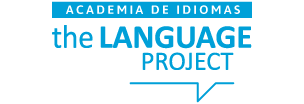Role of Educators in Technology-Enhanced Language Learning
ACTFL strongly recommends that a language educator be responsible for the planning, instruction, assessment, and facilitation of any language course, leveraging technology to support language learning. Language instruction is best guided by language educators rather than solely delivered via a computer program or by a non-content specialist:
· Research does not support the isolated use of technology for acquiring a language.
· Interaction with a language educator is critical to building spontaneous interpersonal skills needed for real-world communication.
· Intercultural competence is best acquired through human interactions and meaningful experiences facilitated through a language educator.
· Educators use content knowledge, research-informed teaching strategies, and effective technology applications to support language learning.
Role of Technology for Learners
Technology can and should be used by language educators to enhance language instruction, practice, and assessment, as articulated in the World-Readiness Standards for Learning Languages. Through the purposeful use of technology:
· Students read, listen to, and view authentic, engaging, and timely materials from the target culture.
· Students practice interpersonal skills as they interact via video, audio, or text in real-time with other speakers of the target language.
· Students collaborate on presentational tasks with their peers or teacher, anytime, anywhere.
· Students work at their own pace as they access online content and/or utilize computer adaptive programs managed by their teacher.
· Students practice discrete skills with engaging online games and applications. · Students benefit from differentiated instruction where multiple applications can be used to assess students, assign varied tasks, track data, give real-time feedback, and manage classrooms and lessons.
The use of technology is not a goal in and of itself; rather technology is one tool that supports language learners as they use the target language in culturally appropriate ways to accomplish authentic tasks. Further, all language learning opportunities whether facilitated through technology or in a classroom setting, should be standards-based, instructor-designed, learner-centered, and aimed at developing proficiency in the target language through interactive, meaningful, and cognitively engaging learning experiences. ACTFL acknowledges a role for hybrid, online and distance learning instructional models aligned with state and national standards and facilitated by language educators. The development of technology is best driven by the needs of the language learner, supporting the kinds of interactions our students need to become college, career, life, and world-ready. Source: ACTFL website.


